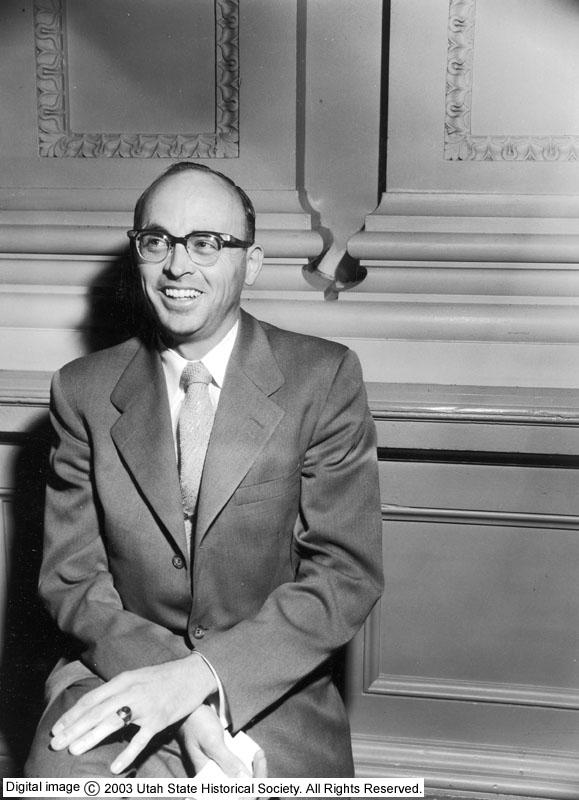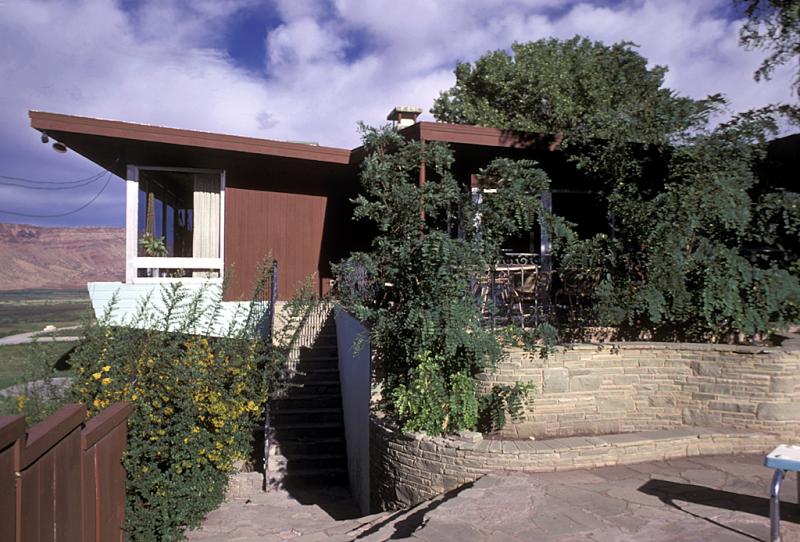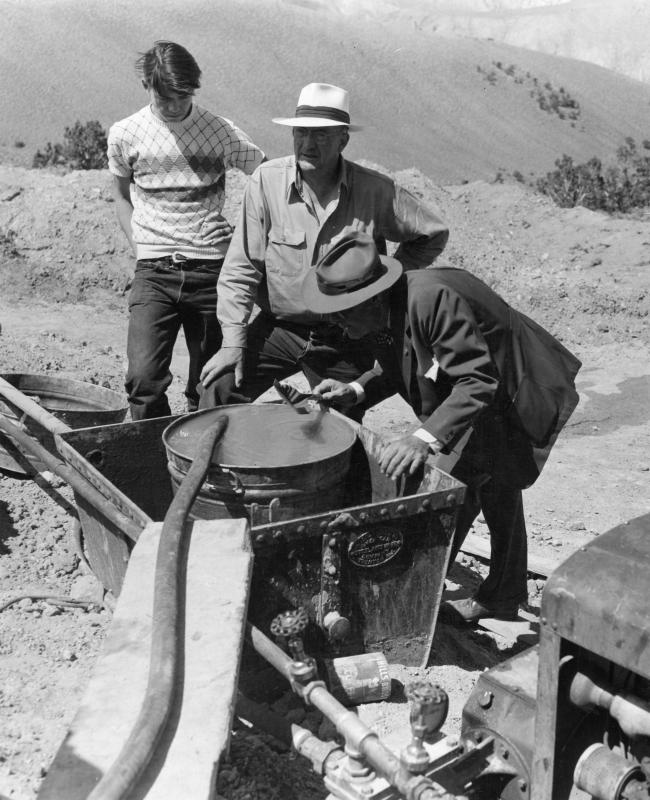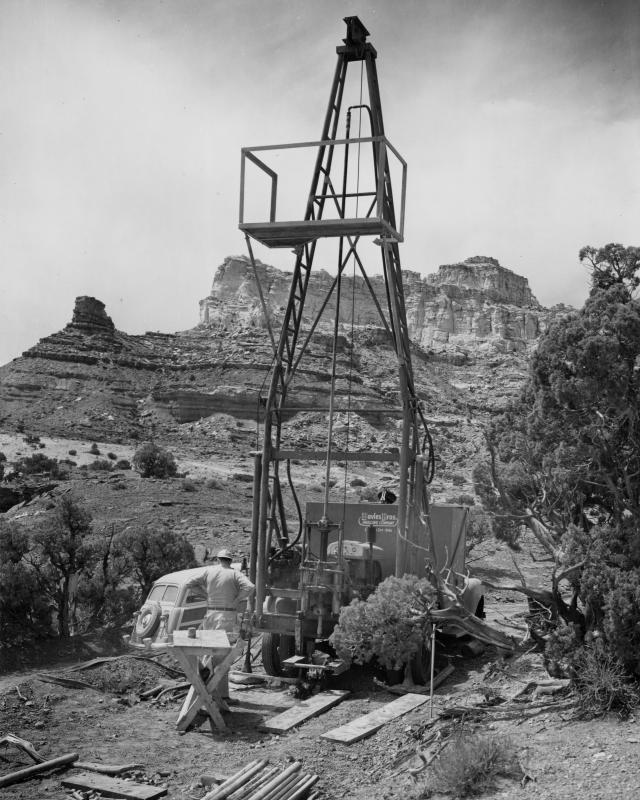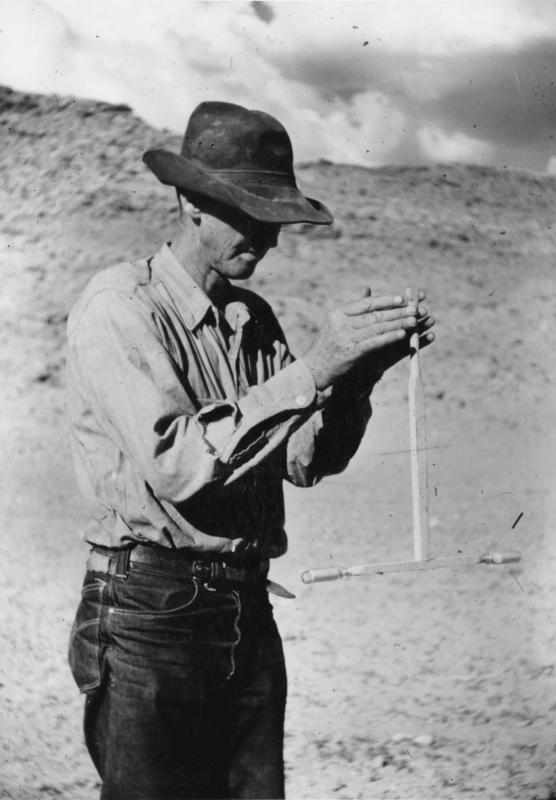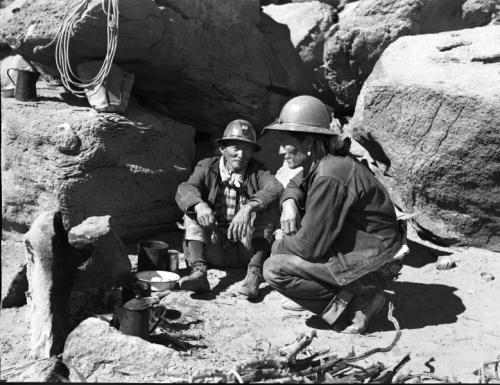Reward: Money
Charles Steen moved his family into a tarpaper shack while he searched the desert for a uranium bonanza. In 1952, he made a multimillion dollar discovery and set the uranium boom into full swing.
“My brother and I found the Payday Mine, and we were going to give a fellow half interest in it if he’d build us a road into it. He got within 50 feet of the ore body. He was an alcoholic and he had to go have a drink, and he got drunk and never came back. This has been the greatest blessing of our life because we finished the road up and the mine was worth a million dollars.”
“The winter of ’54-’55 was a very great era of speculation in San Juan County, and the interest was high enough so there was a demand for what came to be known as goat pasture claims. We’d just go down the bottom of a canyon or anywhere and we could get at least three dollars for every claim that we staked. We’d sell it to one of the people in the area who then probably sold it for a hundred dollars at least and who included, so I found out just recently, included the two or three hundred claims that we staked into a corporation that he was forming.”
Several of the narrators complained about being ripped off by the uranium mills. Mill employees in turn described how miners would try to game their assaying techniques to get paid for higher grade ore.
"It was a common thing. You could buy a chemist off to give you a better assay [of the ore’s grade at the mill]. Everybody does."
The lack of securities regulations in Utah led to a frenzy of “penny stock” corporations with dubious assets. Salt Lake City was known for a time as the “Wall Street of Uranium Stocks.”
“We started having a lot of stockholder problems because many stockholders got into companies that just didn’t have properties.”
“It is true that money does not greet us. If you like something nice, you need money to pay for it--if you have money and you're happy about it. But it does not establish a relationship.” - Mary Louise Johnson, Widow of a Miner
"To say I wish I did not work is impossible, because like I said, there are things that are needed. Well, it is money that is used to get what is needed, such as food and clothing. Because of these needs, even though it may be dangerous, you will go there to work. That is how it is." - Tommy James, Navajo Miner
“I’ve known Indians that didn’t want a job because they weren’t hungry. That’s always been a problem down on the reservation.”
“I don’t know that it’s the best thing in the world to try to have [Navajo] people just forget everything in their entire historic background and try to convert them into our social arrangement or not."
“The income from uranium was very beneficial, and gave decided impetus to the Navajo tribal government to exercise its rights under the treaty and under the federal regulations… Simultaneously with that in 1947 the Navajos also became very acutely aware of the need for a general legal counsel, which they also retained, and it was a revelation to them as to what rights they had, which they did not know they had.”
“People got to eat somewhere, and they just take what they can get.”

This work is licensed under a Creative Commons Attribution-NonCommercial 4.0 International License.
All content © Nate Housley.

